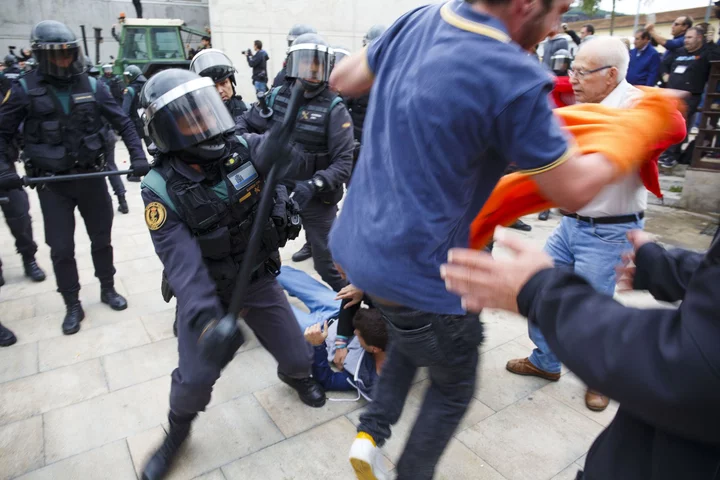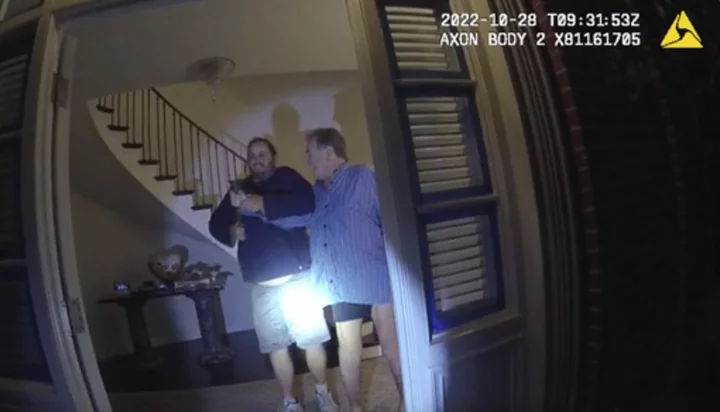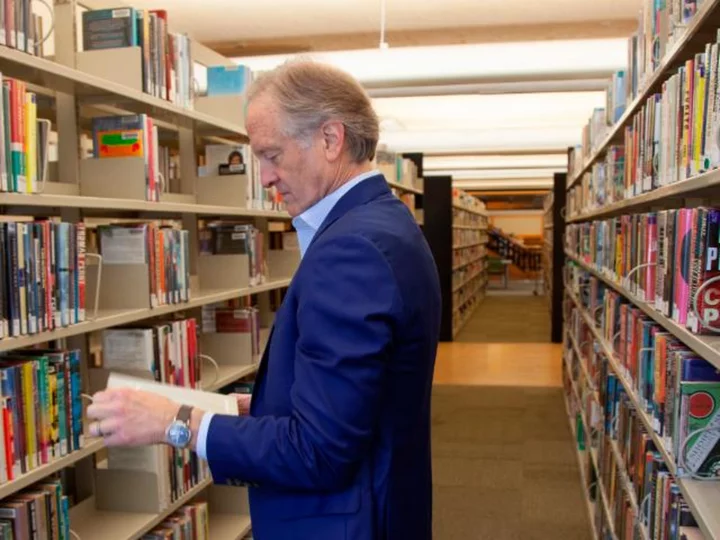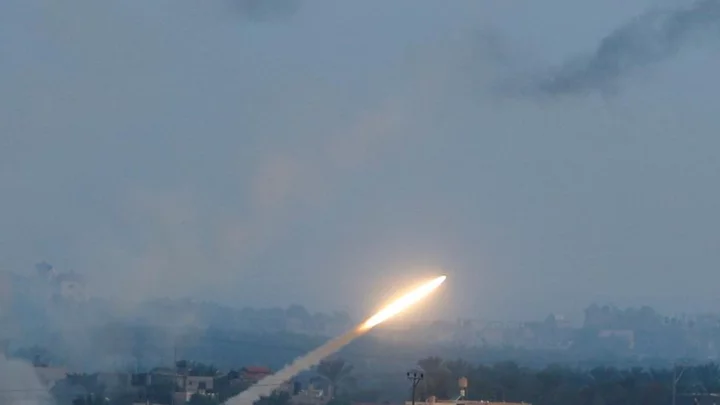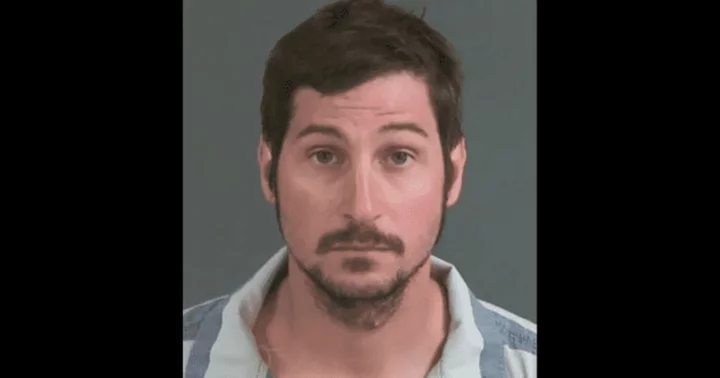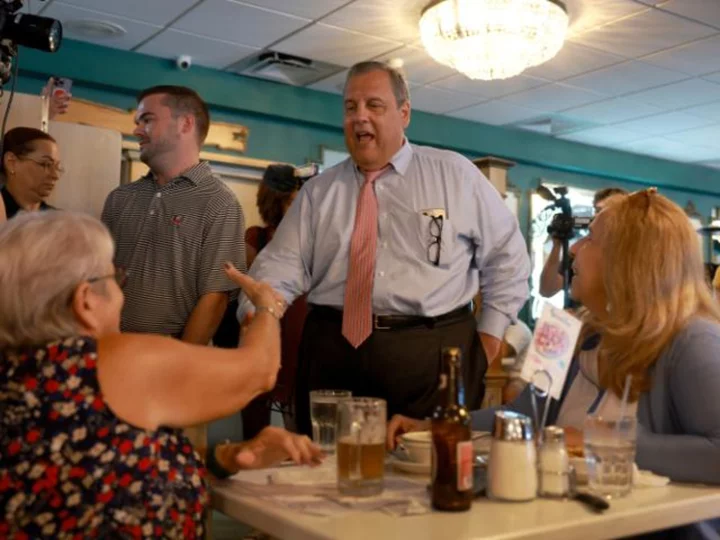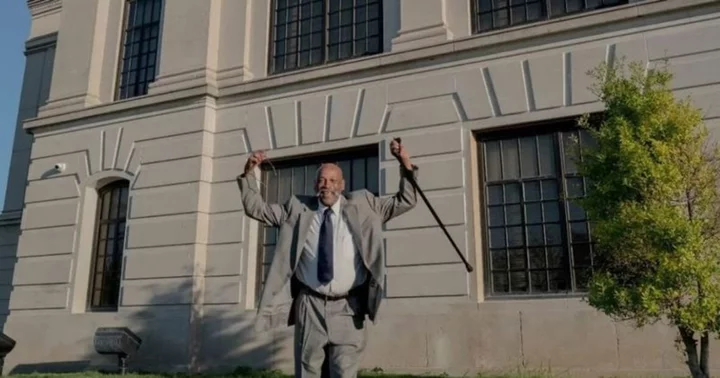Prime Minister Pedro Sanchez has spent most of his political career on a tightrope and he’s betting the future of Spain on his ability to pull off another outrageous balancing act.
Battling to secure a third term after losing July’s election, Sanchez’s Socialist party on Thursday agreed an extensive concession for a Catalan separatist group, with amnesties for hundreds of activists who tried to break up Spain six years ago. In exchange, the 51-year-old Socialist will get the parliamentary support he needs to take office for a third term and Spanish conservatives are outraged.
If his plan comes off, Sanchez will have locked in another four years in power to become the country’s longest serving premier since Felipe Gonzalez stepped down in 1996, he’ll have normalized Catalonia’s position within Spain and consolidated a new progressive majority in the European Union’s fourth largest economy.
The risk though is that he revives the previously moribund separatist movement, plunges Spain into constitutional crisis or worse, and deepens the ideological divisions that have regularly paralyzed the country since the Catalan crisis.
The response has been visceral from Spanish conservatives. They see former Catalan President Carles Puigdemont, now set to return from his self-imposed exile in Brussels, as a traitor and a criminal.
“We feared there would be an amnesty law, and we found that it’s something much worse, because it’s a blanck check,” for separatists, Isabel Diaz Ayuso, the conservative president of Madrid region, said in a statement Thursday. The Socialists ``have signed whatever they were givien” without defending Spain.
Thousands of protesters, mainly far-right supporters, gathered outside the Socialists’ party headquarters on Thursday, as has been happening for several days this week. The protests, which included chants against Sanchez and the Catalans but also against Muslims, ended with clashes with the police. The country’s four judges associations, including a progressive one seen as close to the government, issued a statement criticising the deal’s references to legal proceedings. The association of prosecutors and the governing body of the judiciary issued similar statements, while the main business industrial group called an emergency meeting for Nov. 13.
European Justice Commissioner Didier Reynders had written to Sanchez, before the concession was agreed, asking for details of the planned amnesty law which a group of Spanish judges described as “the beginning of the end of our democracy.” Another National Court magistrate made Puigdemont a suspect in a terrorism probe in a bid to derail the accord. No bill has yet been presented. The government told Reynders that because it only has a caretaker capacity, bills have to be filed by lawmakers.
The conservative People’s Party, Spain’s largest political group, is organizing demonstrations in Madrid and other cities on Sunday.
Read More About Catalonia’s Troubled Relationship With Madrid:
- Cold Reality Dawns for Catalonia as Spain Quashes Independence
- Catalans Declare Independence as Spain Prepares to Hit Back
- Spanish Police Storm Polling Stations to Block Catalan Vote
Few issues inflame passions in Spain quite like the 2017 referendum which saw images of riot police in Barcelona beating people trying to vote.
In the weeks that followed separatists cut off a main highway to France, thousands of Catalan companies switched their legal base to other parts of Spain to escape the financial turmoil unleashed by the separatists and the conservative government in Madrid ultimately suspended Catalan autonomy to take direct control of the region.
This time, there’s the added charge of hypocrisy against the prime minister who ruled out an amnesty just two days before Spaniards went to the polls. In November 2022 he had said such a move was “something this government will not accept and, without a doubt, doesn’t fit within Spanish law or the Constitution.”
On Oct. 28, with his political career dependent on the separatists’ support, he said instead that it will “help to cure the open wounds” around the crisis in Catalonia.
Videos of upper class Madrileños shouting homophobic and racist abuse at the police add to a sense of rancor that is spreading across Europe as the conflict between Israel and Hamas stresses the fault lines between different communities in cities like London, Paris and Berlin. Vox, which is opposed to migration from Muslim countries, emerged in response to the 2017 crisis and on Thursday its leader Santiago Abascal tried to draw a connection between the attack on his former colleague and Sanchez’s coalition pact.
“We hope the state security services catch those murderers as soon as possible and that no one ever offers them an amnesty,” he said at a televised press conference.
Sanchez has been provoking Spanish conservatives for years. Since taking office in 2018 he’s imposed restrictions on hunting and had the body of former dictator Francisco Franco removed from his mausoleum in the mountains north of Madrid. A government report last month estimated that as many as 400,000 children may have been sexually abused by the Catholic Church over several decades.
There’s also a direct line between the tensions on the streets of Madrid and Europe’s foreign policy — Spain is one of five EU countries that hasn’t recognized the independence of Kosovo, with Spain wary of any precedent that might help to validate the Catalans’ demands for the right to self-determination.
When Spain endorsed EU calls for a two-state solution to the conflict between Israel and Hamas, Catalan negotiators welcomed that as another sign of the shift that Sanchez is trying to navigate.
The government and Junts have been holding discussions since late August, with negotiations shrouded in secrecy and taking place largely in non-descript buildings in Madrid and Barcelona. Only Puigdemont and three of his closest collaborators have been directly involved.
As well as the amnesty, Sanchez has agreed to revise the funding mechanism for Catalonia and a plan to stimulate the return to the region of hundreds of companies that left in 2017. On their ultimate goal of a legal referendum on independence from Spain, the separatists toned down their demand in the deal, by saying they will propose holding one within the framework of the Constitution.
For Sanchez and his allies, the discussions with Puigdemont are part of a broader plan to defuse the separatist conflict in Catalonia and make the region back a major player in national politics again, according to a person familiar with the premier’s views. Adding to the febrile atmosphere, the Catalan co-founder of far-right group Vox Alejo Vidal-Quadras was shot in the face in the center of Madrid shortly after the deal was announced. There is no indication that the gunman, who escaped by motorcycle, was politically motivated and Vidal-Quadras’s life was said to be out of danger.
The prime minister’s record suggests he might just pull that off.
Many conservatives predicted that he would be punished by mainstream voters for his decision to pardon nine separatist leaders jailed in 2021. Instead, the Socialists’ maintained their support in July’s election and enjoyed their best result in Catalonia for a decade.
Despite the People’s Party winning the most seats, the right-wing bloc which also includes Vox fell short of a majority, handing Sanchez a chance to stitch one together among seven different parties.
The economic data is also in his favor — Spain’s gross domestic product has grown more than most European nations since the pandemic and the country was the first major economy in Europe to see inflation dip below 2% as the cost of living crisis subsided.
Sanchez is betting the amnesty will consolidate Socialist gains in Catalonia, by robbing the separatists of their claims to victimhood and forcing them to fight on bread and butter issues like jobs and public services. Catalonia is set to hold regional elections within 18 months and the Socialists have a chance of coming in first in what was traditionally one of their electoral strongholds.
But before he gets there, Sanchez is going to have to deal with the anger in Madrid.
(Updates with Diaz Ayuso’s statement in sixth paragraph, latest protests in seventh and statements in eighth.)

